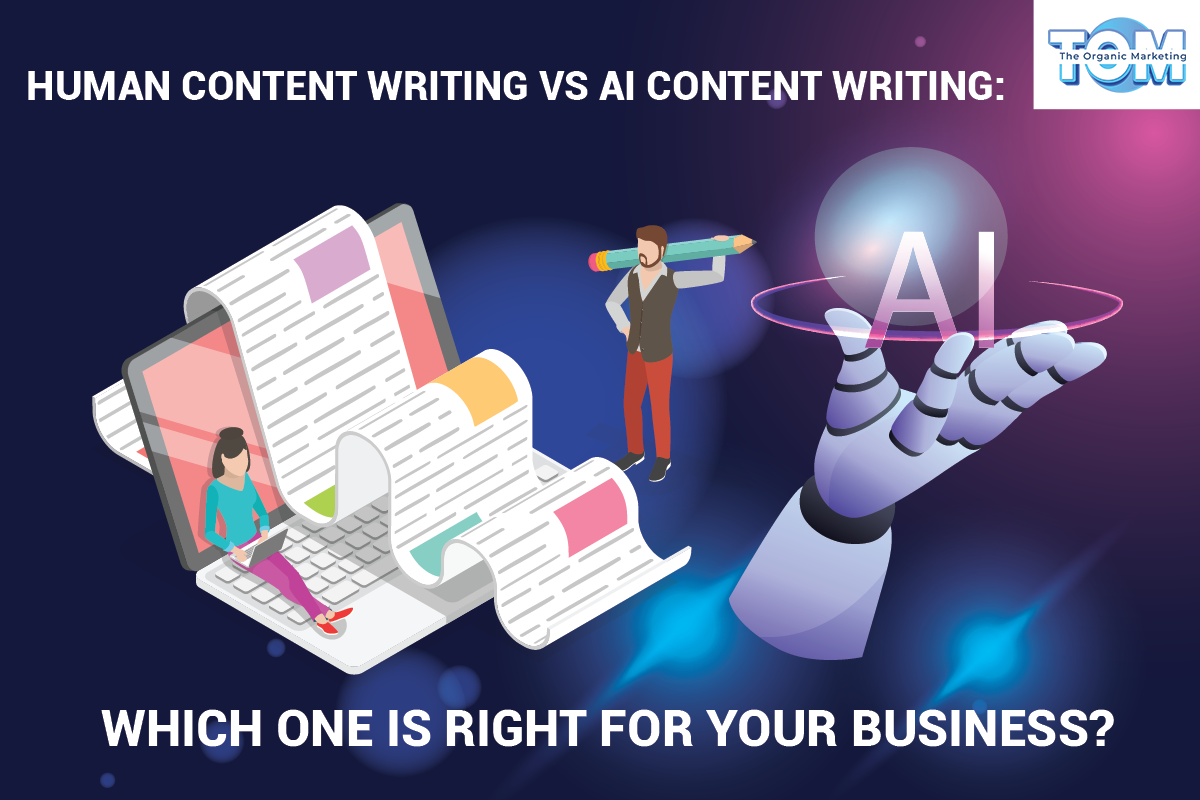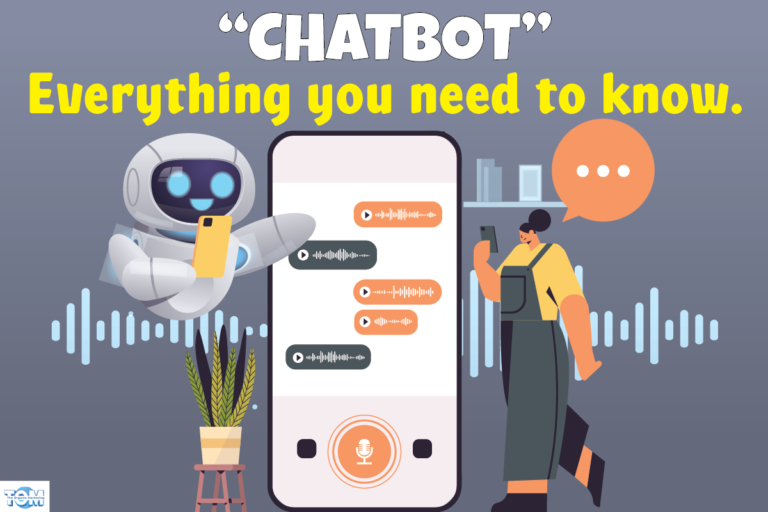Human Content Writing Vs. AI Content Writing: Which One is Right for Your Business?
AI has emerged as a powerful tool in content writing that can automate and streamline the process. However, as with any innovation, there are debates about whether AI content writing can replace human writers. Let us explore human writing and AI’s strengths, limitations, and other possibilities.
The Rise of AI Content Writing
AI content writing has gained traction in recent years due to natural language processing and machine learning advancements. These technologies enable AI systems to analyze vast amounts of data, learn from it, and generate human-like content. From generating blog posts and product descriptions to crafting social media captions and email newsletters, AI content writing can handle a wide range of writing tasks with remarkable efficiency.
The Strengths of Human Content Writing
While AI content writing offers undeniable advantages, human content writing still holds a unique edge in several key areas:
Creativity and Originality:
Human writers can think creatively, incorporating unique perspectives and innovative ideas into their content. They can adapt their writing style to suit different audiences and create engaging, memorable content that resonates with readers.
Emotional Connection:
Humans are adept at evoking emotions through their writing. They can weave personal experiences and anecdotes into their content, establishing a genuine connection with readers. This emotional appeal can be instrumental in building brand loyalty and trust.
Critical Thinking:
Human writers excel in critically analyzing information, conducting in-depth research, and presenting well-rounded arguments. They can interpret complex concepts and distill them into easy-to-understand content, ensuring clarity and accuracy.
Adaptability:
Content needs change over time, and human writers can adapt quickly to new requirements. They can swiftly incorporate feedback, adjust their writing style, and pivot their approach to align with evolving business goals and industry trends.
Subject Matter Expertise:
Human writers often specialize in specific industries or niches, acquiring deep knowledge and expertise over time. This expertise allows them to provide valuable insights and produce high-quality content that showcases industry authority.
The Advantages of AI Content Writing
On the other hand, AI content writing offers several distinct advantages:
Speed and Efficiency:
AI can generate content at an incredibly rapid pace, allowing businesses to produce large volumes of content in a short amount of time. This efficiency is especially valuable for time-sensitive campaigns and content marketing strategies.
Consistency and Scalability:
AI systems can maintain a consistent tone and style throughout a work. It ensures a cohesive brand voice across various platforms and allows for scalability, even when dealing with extensive content production needs.
Data-Driven Insights:
AI can analyze vast data to identify patterns, trends, and audience preferences. This data-driven approach can help businesses tailor their content to target specific demographics, optimize SEO performance, and improve overall content effectiveness.
Language Translation:
AI-powered translation tools have significantly advanced, enabling businesses to translate content into multiple languages and reach a global audience more effectively. AI-powered translation tools can handle complex linguistic nuances, ensuring accurate and contextually appropriate translations.
Content Optimization:
AI can analyze existing content and provide insights on improving its performance. It can identify areas for optimization, such as keyword usage, readability, and search engine rankings, helping businesses enhance their content for better visibility and engagement.
Choosing the Right Approach for Your Business
When deciding between human content writing and AI content writing for your business, it’s crucial to consider your specific needs and goals:
Human content writing is likely the best choice if your business requires content that demands creativity, emotional connection, and a personalized touch. Human writers excel at capturing the essence of your brand, connecting with your audience on a deeper level, and delivering content that resonates.
On the other hand, if your business requires high volumes of content in a short time frame or necessitates data-driven insights for targeted campaigns, AI content writing can be a valuable asset. It can help you produce content at scale, optimize performance, and reach a wider audience through translation capabilities.
It’s worth noting that a hybrid approach is also possible. Many businesses combine the strengths of human and AI content writing to achieve optimal results. For instance, human writers can create the initial draft infused with creativity and expertise, while AI tools can assist in editing, proofreading, and optimizing the content for specific goals.
Conclusion
The debate between human content writing and AI content writing is not about choosing one over the other but understanding how each approach can complement and enhance your business’s content strategy. By harnessing the strengths of both human and AI capabilities, businesses can strike a balance between creativity, efficiency, and data-driven insights.
The Organic Marketing agency can be the best choice for you if you are looking for best Content Writing agency.






